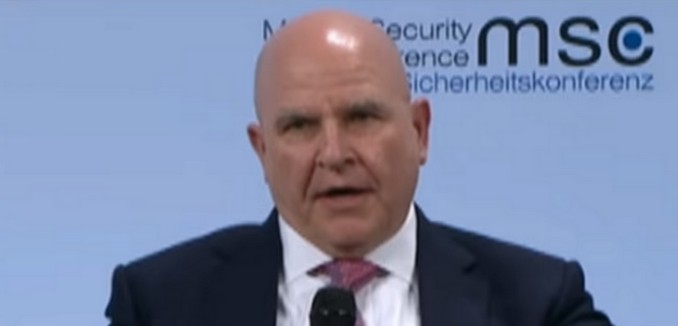Two top Iranian officials pushed back against comments recently made by American National Security Adviser H. R. McMaster urging the world to stop funding Iran’s Islamic Revolutionary Guard Corps (IRGC), which he said played “a central role” in Iran’s becoming the world’s top state sponsor of terrorism, accusing the United States of violating the 2015 nuclear deal reached with Iran, the Washington Free Beacon reported last week.
“Every statement that has been made by President Trump that he wants to undermine this deal is a violation of the same paradigm,” Iranian Foreign Minister Zarif said in a response to McMaster’s speech at the Munich Security Conference. “The U.S. is in violation of the deal, that doesn’t mean the deal is broken.”
“So we believe the U.S. is already in violation,” Zarif said, adding that he demanded that Trump “respect” the obligations agreed to by the Obama administration.
Similarly, last week, Iran’s Deputy Foreign Minister Abbas Araqchi, in an apparent reaction to McMaster’s speech also accused the U.S. of violating the nuclear accord and threatened that Iran would walk away from the deal.
“If the same policy of confusion and uncertainties about the JCPOA (Joint Comprehensive Plan of Action) continues, if companies and banks are not working with Iran, we cannot remain in a deal that has no benefit for us,” Araqchi told an audience in London, adding, “that’s a fact.”
Contrary to Araqchi’s claim, in 2016 Iran’s economy was projected to grow 4% a year over five years as a result of sanctions relief. Since the deal was concluded, Iran has also significantly increased its military spending a number of times.
Even before Donald Trump became president, Iran accused the U.S. of violating the deal by not ensuring that Iran’s economy was getting enough of a boost.
In June 2016, Sen. Chris Coons (D – Del.), who had supported the nuclear deal, rejected Iranian claims that the U.S. was not living up to the terms of the nuclear deal because it was not helping companies invest. “The United States has upheld our end of the bargain,” Coons said. “We have not prevented Iran from receiving economic benefits associated with the deal.” He added that he was was “concerned that by entertaining Iranian complaints of inadequate sanctions relief, we risk giving these claims legitimacy.”
This isn’t the first time that Coons has pushed back against the notion that the U.S. wasn’t doing enough to facilitate sanctions relief. In April, Coons rejected statements made by Central Bank of Iran governor Valiollah Seif, who said that the U.S. had not given Iran enough sanctions relief. “If Iran is unhappy with the level of economic relief it has received since this agreement came into effect, it only has its own actions to blame,” Coons responded on the floor of the Senate.
Coons was referring to the fact that many of the sanctions imposed on Iran predated the nuclear deal and were imposed to penalize Iran for its money laundering and terror support.
[Photo: CNN / YouTube]




